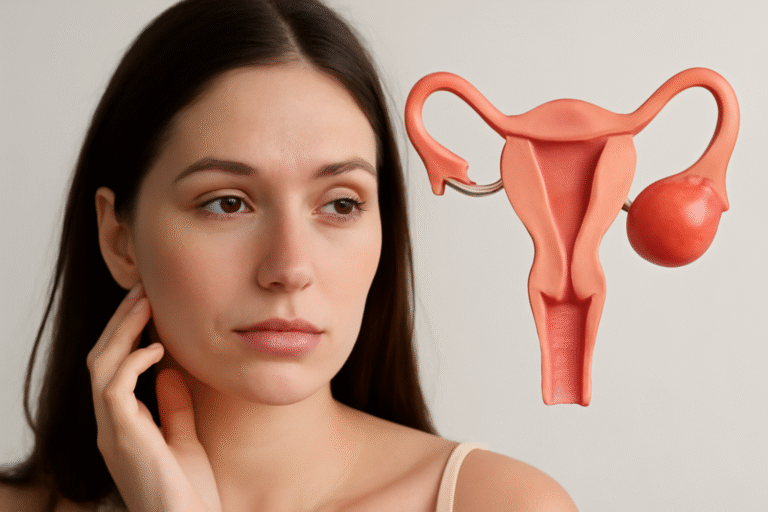Have you ever dreamt of hearing two heartbeats during an ultrasound? Or imagined the joy of dressing up two little bundles of joy in matching outfits? While having twins can be a double blessing, it’s also a unique experience that comes with its own set of challenges and responsibilities. Some couples find the idea of raising twins exciting and want to explore ways to increase their chances of having twins. Although there’s no guaranteed method to make this happen, certain natural, genetic, and medical factors can boost the likelihood. In this detailed guide, we’ll dive deep into what influences twin pregnancies and share practical tips that might help you on your twin baby journey.
Also read: Hot Flashes in menopause Causes and Treatments
What Causes a Twin Pregnancy?
Before diving into the tips, let’s understand how twins are conceived.
There are two types of twins:
- Fraternal Twins (Dizygotic): These occur when two separate eggs are fertilized by two different sperm cells. They may or may not look alike and are genetically similar like regular siblings.
- Identical Twins (Monozygotic): These happen when a single fertilized egg splits into two embryos. Identical twins share the same genetic makeup and usually look alike.
While identical twins are generally random and not influenced by external factors, fraternal twins can be affected by various elements including genetics, age, diet, and medical treatments.
Factors That May Increase Your Chances of Having Twins
While there’s no magical solution for conceiving twins, several biological and environmental factors can increase your odds:
1. A Family History of Twins
Genetics plays a big role, particularly when it comes from the mother’s side. If twins run in your maternal lineage, you’re more likely to release more than one egg during ovulation, increasing your chance of fraternal twins.
Fun Fact: The likelihood doubles if your mother or grandmother had fraternal twins!
2. A Previous Twin Pregnancy
Already a parent of twins? Then you’re in luck! Studies show that women who have already delivered twins naturally are more likely to conceive twins again in future pregnancies.
3. Body Composition: Height and Weight
Research has shown that taller and curvier women are more likely to conceive twins. Why? Higher body fat may result in increased levels of estrogen, which can stimulate the ovaries to release more than one egg per cycle.
Women with a BMI (Body Mass Index) over 30 are found to have higher chances of twin pregnancies, though this must be balanced with overall health risks.
4. Number of Previous Pregnancies
The more pregnancies you’ve had, the higher your odds of conceiving twins—especially fraternal twins. That said, multiple past pregnancies can also come with increased health risks for both mother and baby.
5. Age: Women Over 35
Believe it or not, your biological clock may actually favor twin conception. Women aged 35 and older tend to produce more follicle-stimulating hormone (FSH), which encourages the release of multiple eggs during ovulation. This makes twin pregnancies more likely.
However, pregnancies at this age can also bring additional complications like high blood pressure, gestational diabetes, and miscarriage risks, so medical supervision is crucial.
Natural and Medical Tips to Boost Your Twin Pregnancy Odds
If you’re actively trying to conceive twins, here are several approaches—both natural and medical—that may help increase your chances:
1. Consider In Vitro Fertilization (IVF)
One of the most effective ways to boost your chances of having twins is through IVF. During this assisted reproductive procedure, multiple embryos may be implanted into the uterus. Doctors often transfer more than one embryo to improve the chances of a successful pregnancy—making twin pregnancies more likely.
However, this method should be approached cautiously and under the care of a fertility specialist.
2. Try Artificial Insemination with Fertility Medications
While artificial insemination alone doesn’t directly cause twins, combining it with ovulation-stimulating medications like Clomid or Letrozole increases your chances. These drugs stimulate the ovaries to release multiple eggs, which can then be fertilized simultaneously.
Always consult your OB-GYN before starting any fertility medication.
3. Increase Your Dairy Consumption
According to studies, women who consume more milk and dairy products may have higher chances of conceiving twins. Why? It’s believed that insulin-like growth factor (IGF) found in cow’s milk can increase ovulation rates.
So go ahead and add more cheese, yogurt, and milk into your diet—but always in moderation.
4. Conceive While Breastfeeding
Surprisingly, some women have reported a higher likelihood of twin conception while breastfeeding. This might be due to hormonal fluctuations that cause the release of multiple eggs.
Though not backed by solid evidence, it’s a harmless and natural option worth considering.
5. Eat Zinc-Rich Foods (Especially for Men)
For hopeful dads, zinc plays a key role in sperm health. A diet rich in zinc can help improve sperm count and quality—factors that may support twin conception when more than one egg is available to fertilize.
Zinc-rich foods include: oysters, beef, spinach, pumpkin seeds, and lentils.
6. Take Folic Acid Supplements
Folic acid doesn’t just prevent birth defects—it may also slightly increase your chances of having twins. Some studies suggest women who take folic acid supplements before conception have a higher probability of multiple pregnancies.
It’s safe and commonly recommended for all women trying to conceive.
7. Space Out Your Pregnancies
Short intervals between pregnancies may reduce your chances of conceiving twins. Giving your body adequate recovery time between births helps regulate your hormones and increases your chances of multiple ovulations in future cycles.
Twin Pregnancy Risks to Consider
While the idea of having twins is exciting, it’s important to know that twin pregnancies carry more risks than single births. Some common complications include:
- Preterm labor
- Gestational diabetes
- High blood pressure
- Cesarean delivery
- Low birth weight
- Twin-to-twin transfusion syndrome (in rare cases)
That’s why it’s crucial to consult with a healthcare provider, especially if you’re planning a twin pregnancy deliberately.
Final Thoughts: Should You Aim for Twins?
Wanting twins is completely natural, and it’s okay to explore ways to improve your chances. Just remember: while some factors like family history, age, or previous pregnancies are out of your control, others—such as diet, lifestyle, and fertility treatments—can be optimized.
The most important thing is ensuring both your health and the baby’s well-being are prioritized. Whether it’s one baby or two, the journey to parenthood is unique and special.
If you’re considering fertility treatments or want expert advice tailored to your body and health condition, consult an experienced OB-GYN or fertility specialist. Clinics like Siloam Hospitals offer personalized guidance to help you plan a safe and healthy pregnancy.
Frequently Asked Questions (FAQs)
Q1. Can certain foods increase the chances of having twins?
Yes. Foods rich in dairy, folic acid, and zinc may increase your chances naturally.
Q2. Is IVF a guaranteed way to have twins?
No, but it significantly increases the likelihood when multiple embryos are implanted.
Q3. Is having twins more difficult than a single pregnancy?
Twin pregnancies generally come with higher risks and medical complications, so they require more frequent monitoring and care.
Would you like a downloadable version of this article or visuals to go along with your blog post?





[…] Factors That May Increase Your Chances of Having Twins […]